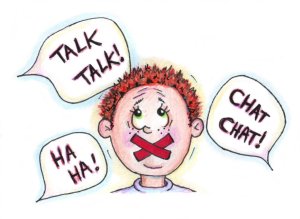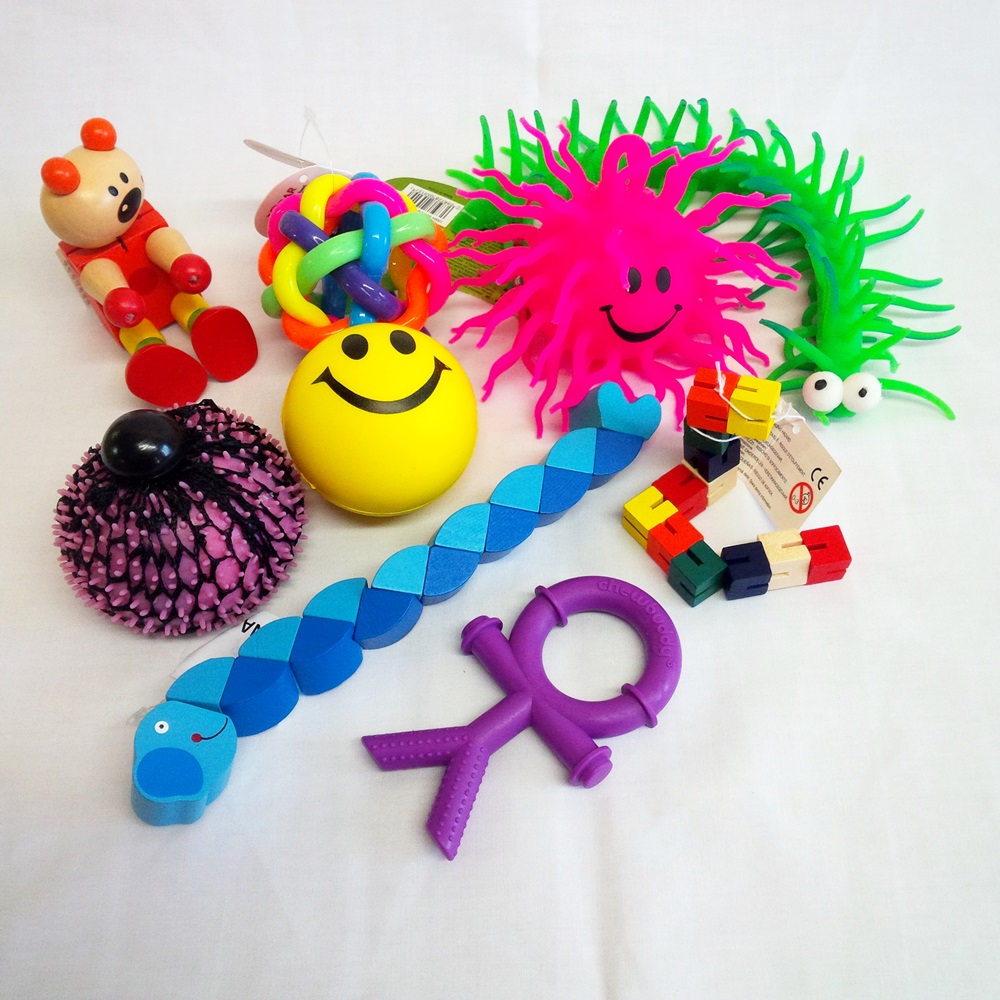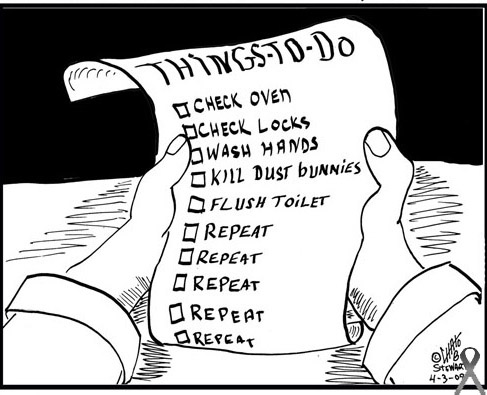My Child Can Talk, But Won't, Why?
/My Child CAN Talk, But Won’t, Why?
Selective Mutism/Social Anxiety
By Patience Domowski, LCSW
Assuming your child is able to talk, and not dealing with a speech delay or autism, but the child sometimes, or often, refuses to talk, usually in certain situations,you may be quite confused why this happens, and what to do about it.
Usually the reason is excessive anxiety. The child could have social anxiety, social phobias, or be diagnosed with ‘Selective Mutism’ (an anxiety disorder where the child will not speak at all in certain settings).
Children can get anxiety from genetics (anxiety ‘runs in the family’, so to speak), from a traumatic event (the child considers it traumatic, even if others might disagree), or sometimes anxiety seems to come out of nowhere (likely to be biological). Social Anxiety or Social Phobia is a fear of others judging or looking at them. Often children, and adults, know that know one is technically watching them but they feel like they are being watched. It's like paranoia, but may not be quite that severe. The affected person may feel like if they speak others will think bad thoughts about them. Maybe they are worried they will be bullied, or taunted. Maybe they get so anxious they can’t say what they want to say so they clam up. Maybe in the past they were actually bullied, or ridiculed or yelled at by peers or adults, or maybe nothing ever bad happened, they just worry it will happen.
If the child has become mute from a traumatic event, it is likely they will not speak across many settings, not just some. They may show signs of fear and other issues like bed wetting. Usually the mutism occurs right after the trauma.
Sometimes children refuse to talk because they don’t know what to say, they want control, they want to frustrate their parents, or for behavior issues. However if the child is showing other signs of anxiety like acting nervous, only refusing to talk in certain situations of high anxiety (like at school, in the community, around strangers), trying to avoid social situations, and even other symptoms like panic attacks, headaches, stomachaches, throwing up, etc it is likely to be for anxiety reasons.
So what do we do about it? One major way is to not pressure the child to speak. Instead of saying ‘You HAVE to say Hi to Grandma!’ you can prompt gently ‘Would you like to say HI? Or you can just wave, if that’s easier’. And then don’t expect any response and be okay with that. Don’t punish the child or yell at them for not speaking. This will make the anxiety much worse and not help at all. If the child is already afraid to speak, then by being yelled at or punished, they will become even more fearful of speaking. They should be encouraged to speak, but then let it go, not pushing it, just telling them they can speak when they are ready. Maybe the child can learn a simple sign/gesture that is acceptable such as a wave, high five, or fist bump for greetings. If that is too much for them, it’s okay.
To help the child become more comfortable, praise them (if they like praise) when they do speak in more relaxed settings. Remind them of the good job they did when in another situation “Remember when you were so brave and said Hi to Uncle John? You did a great job! It went great, didn’t it? You can try to say hello to Uncle George today!” Have them warm up to others by watching before approaching, and visiting places in advance before an event (if possible). For example starting at a new school- have them visit the school a few times when no one is there, or meet the teacher one on one, before the first day, or orientation day.
Try to make meeting new people or new situations relaxed and friendly and not expect or make a big deal about the child talking, just let the child warm up slowly on their own time and at their own pace. Example: “Sweetie, you can join the other kids on the playground if you want, or it’s okay to just stand by me if you prefer.” or “Let’s just watch the other kids play this game and when you’re ready, if you want, you can join in. Wow, that looks like fun!”
It may be helpful to tell others, especially adults, that the child is anxious and not speaking, so the other adult doesn't try to force the interaction and make the child more anxious. Sometimes other children may not even notice, if they are very young, as a lot of play is nonverbal, or the other child will just do all the talking. Often adults may get upset and confused however so it may be helpful to calmly say ‘She might not respond, but don’t take it personally. We’re working on anxiety’ or ‘Don’t worry if she doesn't respond, she will warm up eventually.’
For the socially anxious child they may do great with one on one playdates but be a mess at parties and larger gatherings. Encourage the small group settings to start with, and don’t force larger parties too soon. If possible, just have them observe from a distance, and not expect them to join in the activities. For older children giving them a script of something to say may help if they aren't sure how to start a conversation. “Ask them about their favorite TV show” may be more helpful than “Just try to talk to him!”
Seeking out professional help may be needed if the child isn't making progress after a few weeks. Often children may adjust to a new school after a month or so, or get used to a new group of friends, but if they are still quite mute even after a typical adjustment period, it may be time to ask for some more help. A Behavioral Therapist may be more effective than a speech therapist, find out what their approach would be when selecting someone. Make sure the therapist works with kids with anxiety, not just behavioral disorders, as the approach should be from an anxiety point of view, not a oppositional defiant type approach. The strategies are likely to include acceptance, not forcing, relaxing the environment if possible, preparing child for new and scary situations, telling people not to expect a response, allowing the child to slowly warm up, but not avoiding all scary anxiety situations, and slowly building child’s confidence and reducing fear in being able to speak to others.
Try to remember as a parent, it’s probably not your fault, and it’s not the child’s fault either! Being calm and accepting will help a lot even though it’s very frustrating and of course you want your little darling to speak up. If you as the parent also struggle with anxiety getting some help for that can be useful. Or if you are just so frustrated to the point that you are getting angry with your child about this, it might be helpful to seek out a therapist as well to help you cope. If you aren't feeling so upset about it it may help your child feel less anxious about the situation too. Try not to take the problem personally or that it reflects badly on you as a parent, and that can help you feel better about it as well.
Some kids may grow out of this problem, but likely it will worsen if not treated. Getting some help for anxiety such as coping strategies, learning how to change negative thinking, and sometimes even medicine can go a long way to making things get a lot better. If your child won’t talk to the therapist or doctor, see if the therapist will work with you as a parent to handle the child and teach them the strategies indirectly and that may be sufficient. Also don’t give up too easily. Often children warm up to therapists after a few visits, but not always the first or second meeting. Giving the child an incentive or special reward may be helpful like getting to go out to eat before the session, or can bring a favorite toy with them may help. Even telling the child they don't have to talk about their anxiety, but about anything they want can help a lot (even though of course you want them to talk about the problem!). A good therapist will go along with what the child wants to discuss first and bring it around to the topic they need to work on at some point (may be after a few sessions so the child can warm up). Child therapists also should have some toys, books, coloring, something to do besides just talking which may help the child feel more comfortable. Even if the child isn't talking in therapy, if they are listening to a story, or coloring a picture, it can still be really helpful. Try not to get too frustrated if the therapy isn't working right away, it often takes a while for kids who are slow to warm up. Some kids may even surprise you and talk immediately to the therapist, when they normally wouldn't talk to a strange adult at all.
Remember your child can learn how to speak in social settings with some help. It gets better. Hang in there.
- Some helpful articles and information:
- https://selectivemutismcenter.org/whatisselectivemutism/
- https://childmind.org/guide/selective-mutism/selective-mutism-what-is-it/
- One family’s story: https://childmind.org/story/joint-effort-help-sofia-speak/





















